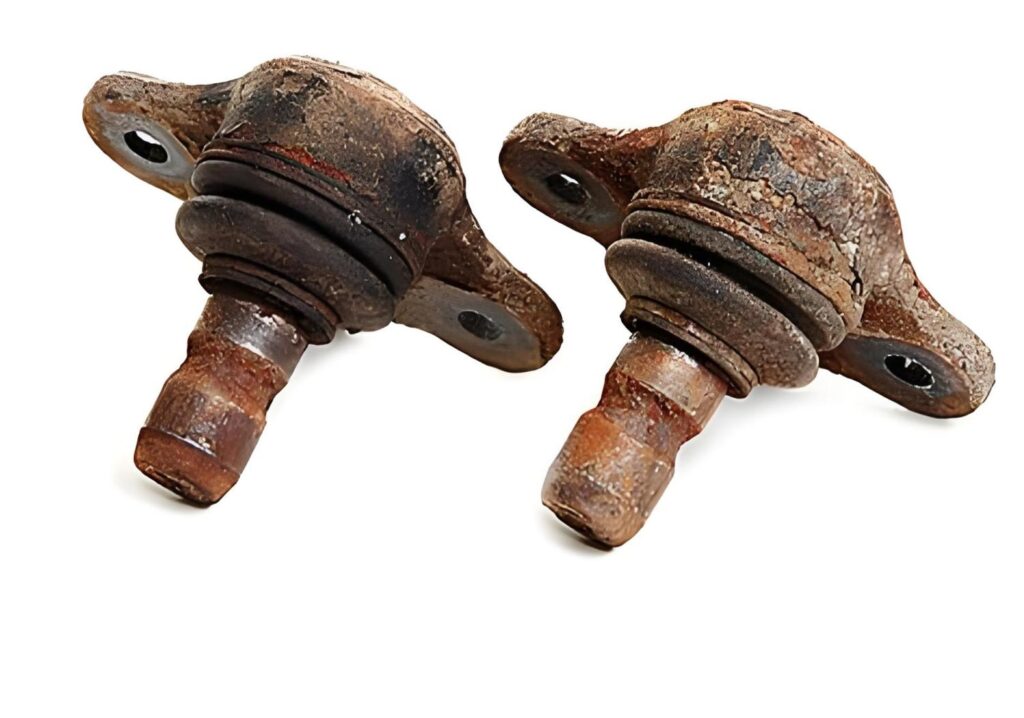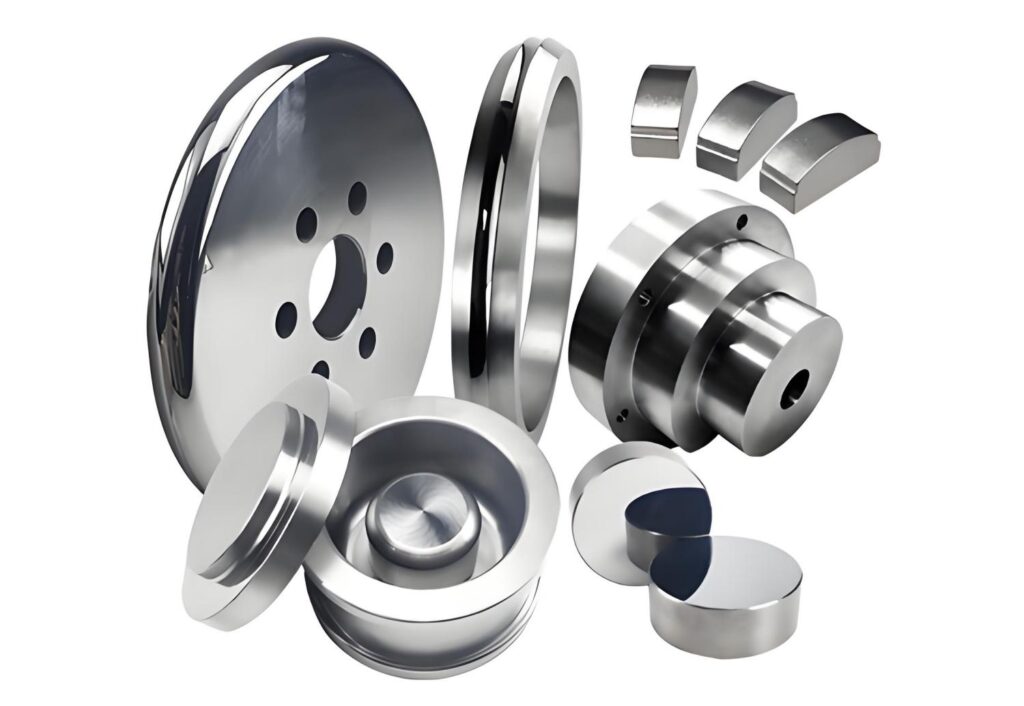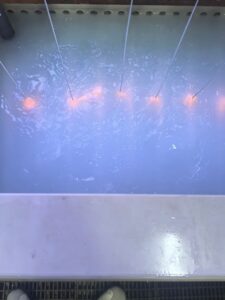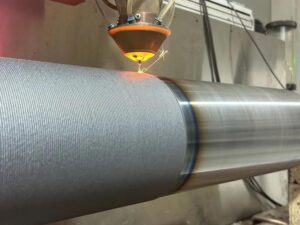Tungsten is a fascinating and highly valued metal in the machining and manufacturing industry. Known for its remarkable density, heat resistance, and strength, it is widely used in aerospace, electronics, medical devices, and industrial tools. Yet one question often arises: does tungsten rust?
While the concept of “rust” is commonly associated with iron, it is important to understand how tungsten behaves in different environments. Unlike iron, tungsten exhibits unique corrosion resistance, making it highly suitable for harsh industrial applications.
This guide explores tungsten’s reaction to water, air, acids, and high temperatures, examines its behavior compared to other metals, and highlights its practical applications.
What Is Rust?

Before answering whether tungsten rusts, it is necessary to define what rust is. Rust is a term specifically used for the oxidation of iron or iron alloys. When iron reacts with oxygen and water, it forms hydrated iron oxides (Fe₂O₃·xH₂O), which are typically reddish-brown and flaky. This process deteriorates the metal over time, compromising its strength and structure.
Other metals may corrode, oxidize, or tarnish, but this is chemically different from iron rusting. For example:
- Copper forms a green patina (copper carbonate).
- Aluminum forms a protective oxide layer (Al₂O₃).
- Tungsten forms tungsten oxides (WO₃) under certain conditions, but this is not rust in the traditional sense.
Does Tungsten Rust in Normal Conditions?
Tungsten is highly resistant to corrosion in normal atmospheric conditions. Several factors contribute to this stability:
Inertness in Air
At room temperature, tungsten does not readily react with oxygen or water. Its surface remains largely unchanged, even after prolonged exposure. Unlike iron, there is no formation of flaky oxides, meaning tungsten does not “rust” in the traditional sense.
Resistance to Water
Tungsten is virtually unaffected by moisture. It does not oxidize or degrade when exposed to water, making it suitable for applications in humid or wet environments.
Surface Oxide Layer at High Temperature
When heated above approximately 400°C, tungsten begins to form a thin layer of tungsten trioxide (WO₃). This oxide layer is brittle and can flake at higher temperatures, potentially exposing the metal underneath. However, under typical room-temperature conditions, this is not a concern.
Tungsten and Chemical Corrosion
While tungsten is resistant to rust, it can corrode in certain chemical environments:
Acid Resistance
Tungsten withstands most acids, including hydrochloric and nitric acids, with little reaction at room temperature. However, strong oxidizing acids at elevated temperatures can attack the metal surface.
Alkali Resistance
Tungsten resists moderate alkaline solutions but can react in strong bases like molten sodium hydroxide or potassium hydroxide.
Fluoride Compounds
Hydrogen fluoride (HF) and some fluoride salts can corrode tungsten due to chemical reactions that form soluble tungsten fluorides. This is a key consideration in chemical processing applications.
Comparison With Other Metals
Understanding tungsten’s corrosion behavior becomes clearer when compared with more common metals:
| Metal | Rust/Corrosion Behavior | Notes |
| Iron | Forms rust (Fe₂O₃·xH₂O) | Weakens over time in air/water |
| Aluminum | Forms protective oxide | Does not flake; corrosion-resistant |
| Copper | Forms green patina | Oxidation layer protects underlying metal |
| Tungsten | Forms thin WO₃ at high temp | Essentially non-rusting under normal conditions |
This comparison highlights why tungsten is preferred in high-stress, high-temperature, or chemically challenging environments.
Applications of Non-Rusting Tungsten

Tungsten’s resistance to rust and corrosion makes it ideal for many industrial and technological applications:
- Aerospace and Defense
Tungsten alloys are used in high-temperature engine components, rocket nozzles, and military-grade equipment because they resist corrosion and maintain structural integrity under extreme conditions.
- Electronics and Semiconductor Industry
Tungsten’s stability ensures it does not interfere with sensitive circuits or devices. It is widely used in thin films, interconnects, and high-temperature electronics.
- Medical Devices
Tungsten’s corrosion resistance and non-reactivity make it ideal for medical equipment and radiation shielding. It is safer than lead in certain applications due to both environmental and health considerations.
- Industrial Tools
Tungsten carbide, often combined with cobalt or nickel, forms cutting tools and wear-resistant machinery. Proper binder selection ensures minimal magnetic interference and corrosion in harsh industrial environments.
- Jewelry and Consumer Goods
Tungsten’s ability to maintain a polished, non-rusting surface makes it popular for rings, watches, and decorative items. It does not tarnish or corrode like other metals, which ensures longevity and durability.
Does Tungsten Rust in Extreme Conditions?
While tungsten is highly corrosion-resistant, extreme environments may affect it:
- High-temperature oxidation: Above 400°C, tungsten slowly forms WO₃, which can flake under mechanical stress.
- Harsh chemical exposure: Strong oxidizing acids and hydrofluoric acid can corrode tungsten surfaces.
- Electrochemical corrosion: In certain electrochemical setups, tungsten may form oxides or react with aggressive ions.
Even in these extreme cases, tungsten corrodes far slower than iron or other common metals, making it exceptionally durable.
Maintenance Tips for Tungsten Components
Although tungsten does not rust, maintaining its surface can extend service life:
Regular Cleaning – Use mild detergents and water to remove dirt and surface contaminants.
- Avoid HF and Strong Bases – Prevent contact with highly reactive chemicals that can attack tungsten.
- High-Temperature Precautions – For applications above 400°C, consider coatings or alloying to protect against oxide flaking.
- Proper Storage – Store in dry, controlled environments to prevent contamination with reactive compounds.
Conclusion
Tungsten is one of the few metals that can be considered essentially non-rusting under normal conditions. Its stability in air, water, and many chemical environments, combined with high temperature and wear resistance, makes it invaluable across industries. From aerospace and electronics to medical applications and industrial tools, tungsten’s resistance to corrosion ensures reliability and longevity.
At Precionn, our expertise in machining and precision components allows us to harness tungsten’s unique properties for high-performance solutions. By delivering products made from tungsten and its alloys, we provide international customers with durable, corrosion-resistant components that excel in the most demanding environments.




